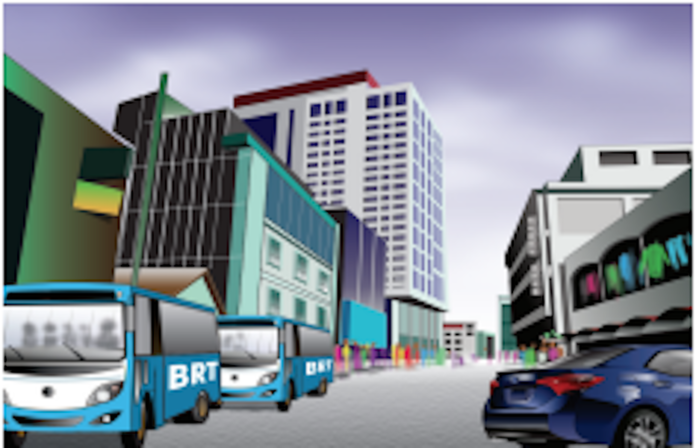The World Bank report is another wake-up call
A disturbing report released last week included more Nigerian cities among the ‘20 Ranked Fastest Growing Cities Worldwide’. Seventeen of these 20 fastest growing cities are in Africa and Nigeria has four of them, three each in Angola and the Democratic Republic of Congo, and two in Mozambique. Apart from Lagos that has for years been undergoing a frightening growth trajectory, the latest additions of fast-growing cities in Nigeria are Gwagwalada, Lokoja, and Potiskum. These new statistics put Gwagwalada’s annual growth rate (2020-2025) at 6.46%. Lokoja is put at 5.53%, and Potiskum, 5.65%.
According to the World Bank, some 55% of the world’s population (about 4.2 billion inhabitants) presently live in cities and this trend is expected to continue. By 2050, with the urban population more than doubling its current size, nearly seven of 10 people in the world will live in cities. But our main concern is about Nigeria. Lagos, once described as an ‘urban jungle’ by President Olusegun Obasanjo, is the largest urban area in the country, and the second largest in Africa. By 2035, the city will be home to about 25 million inhabitants, according to the World Population Review. Lagos currently hosts one of the biggest ports in Africa and is a major financial centre on the continent. The city is also an African hub for information and communications technology, and one of the most culturally rich locations on the continent.
However, the speed and scale of urbanisation brings challenges, including meeting accelerated demand for affordable housing, well-connected transport systems, and other infrastructure. Other problems include basic services, as well as jobs, particularly for the nearly one billion urban poor who live in informal settlements. So, these cities will require well-coordinated long-term plans that must be implemented.
It is interesting to note that Lagos and Ogun States are in talks to coordinate their development through an integrated regional plan that will address transportation, housing, environmental pollution, particularly waste management. Lagos does not have enough land to contain the waste generated within the boundaries of the state. The state also has an uncoordinated housing system, particularly on the Lekki corridor where there are many housing estates built as silos, providing their own infrastructure, water, roads, electricity but ringed with slum communities. In most of these communities, access roads do not exist because the government’s masterplan is yet to be implemented to capture these usually far-flung areas of the city.
In Abuja, the unplanned situation of Gwagwalada is curious because it ought to be covered by the Federal Capital Territory’s master plan. Unfortunately, this fast-growing city is being treated like another rural area or a suburb of Abuja. Yet, these communities could turn into a hub for crime and environmental degradation in the FCT. Meanwhile, the Kogi State government must wake up to the environmental challenge in Lokoja by preparing an implementable master plan that will cover neighbouring urban areas.
Potiskum in Yobe State is strategically located as a centre of commerce, learning, spiritual and cultural revival. People from neighbouring Borno, Jigawa, Kano, Bauchi and Gombe States, and numerous others from Niger, Chad, Cameroon, Benin, and Central African Republic have stakes in the arguably biggest cattle market in sub-Saharan Africa, which is situated in Potiskum. This is the reason why a long-term plan to govern this fast-growing city should be developed now. The authorities in Yobe State must evolve a master plan to ensure even development of Potiskum as more people that are pushed by the unabated insurgency and search for better economic opportunities and commerce to take up available land and cause uncontrollable expansion.
Overall, the World Bank report should be another wake-up call for the authorities in Nigeria on the coming population challenges.
Source : This Day

































